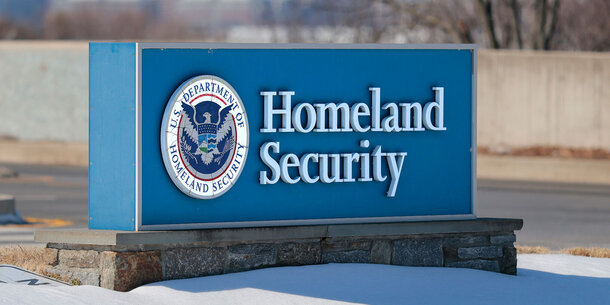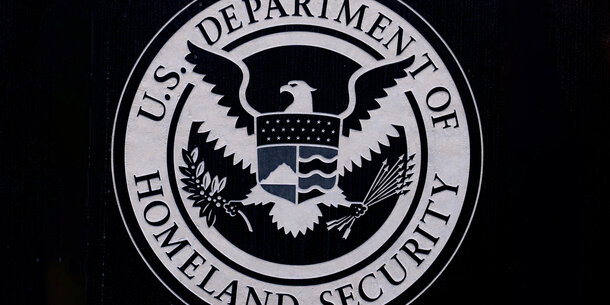The Federalization of State and Local Police
The Constitution established a federal government of limited powers. The 10th Amendment explicitly left powers not delegated to the federal government, nor prohibited by the Constitution, to the states and the people. This federal system divided governmental power between two competing sovereigns so that each could keep the other in check. Policing power — that is, the power to enact laws to promote public safety and the general welfare — is reserved to the states, except where expressly delegated to the federal government, and limited by both state law and the Constitution.
In Federalist No. 45, James Madison argued that states would have a clear advantage over the federal government in the competition between sovereigns. He based this assumption on the limited powers given to the federal government, the states’ stronger connections to local populations, and their collective interest in resisting federal encroachment on state rights.
As the size and power of the federal government grew, through the Civil War, the New Deal, and the civil rights era, the competitive federalism envisioned by the framers transitioned into a new paradigm in which the federal government induced states to support federal initiatives by providing financial grants, imposing mandates, and expanding federal criminal laws. Over time, state and local law enforcement has become entwined with federal law enforcement in ways that can usurp the power of cities and states and challenge their control over their own police officers.
Expansion of federal law enforcement
President Richard Nixon’s war on drugs in the 1970s provided a platform for the expansion of federal law enforcement and the co-optation of state and local law enforcement. Federal officials sought the cooperation of state and local law enforcement, which could contribute significantly more sworn officers to the effort, as well as provide greater knowledge of local communities and crime networks. They established joint law enforcement narcotics task forces, which deputized state and local police officers as federal officers. This allowed the deputized officers to work outside their normal jurisdictional limits and provided them with greater funding, security clearances, and access to federal training, equipment, and classified intelligence systems.
Despite the lack of success in curbing drug trafficking, the federal task force model expanded in the 1980s and 1990s to serve other federal initiatives, including the organized crime and drug enforcement task forces; violent crimes, gangs, and safe streets task forces; the U.S. Marshals’ fugitive task forces; FBI joint terrorism task forces; and border enforcement security task forces. Task forces have proliferated because they are an easy way for the federal government to grow its law enforcement workforce, develop unified strategies, streamline operations, and expand its reach into participating localities. State and local police agencies benefit from these task force arrangements with additional resources, enhanced training opportunities, and access to federal equipment and intelligence systems. But these benefits often come at the cost of public accountability. A 2014 Congressional Research Service report evaluating federal task forces and fusion centers on the southwest border found that “there is no official roster, or task force census, of federally led task forces operating around the country or even in a particular region, nor is there an inventory of those task forces targeting specific threats.” That lack of transparency remains today.
Most controversially, the federal government has encouraged state and local police to assist in immigration enforcement efforts, which is a purely federal function. Through a voluntary program under Section 287(g) of the Immigration and Nationality Act, the Department of Homeland Security can deputize state and local law enforcement officers in participating jurisdictions and authorize them to enforce federal immigration laws. Where state and local agencies have chosen not to enter these formal agreements, police officers have found other means to routinely share immigration-related information with Immigration and Customs Enforcement (ICE), at times in direct violation of state laws and local ordinances.
A multitude of other collaboration mechanisms facilitate information sharing and cooperation between federal, state, and local law enforcement. The most expansive is the national network of state and regional intelligence fusion centers, which were created after the 9/11 terrorist attacks. Originally conceived as a system to share counterterrorism information, fusion centers have expanded their missions to include all crimes, threats, and hazards. They include representatives from state and local law enforcement, emergency response and public health agencies, the National Guard, the FBI, DHS, and select private entities.
Despite the continuing support it provides to fusion centers, the federal government denies ownership or control of these entities and does not regulate the network it established, as the Brennan Center has documented. State and local legislators often have little insight into fusion center activities, however, and don’t have the access, staff, or expertise necessary to conduct effective oversight of their operations, leaving these centers, and the broader network, largely unregulated. Not surprisingly, fusion center abuses targeting an array of minority communities and political dissidents across the political spectrum have proliferated over the decades, unabated. The presence of DHS officials in the fusion centers and the agency’s access to the information that fusion centers collect and share on a regular basis raise concerns that the national network creates a workaround for law enforcement officials to share information with ICE, in violation of sanctuary laws and policies.
Concerns about state–federal law enforcement partnerships
There are undoubtedly benefits that state and local governments can receive through effective collaboration and the timely sharing of relevant criminal intelligence information between federal, state, and local law enforcement agencies. Obviously, no one wants a violent criminal to escape detection and arrest because one law enforcement agency did not share lawfully obtained intelligence information with another agency. But the existing collaborative arrangements between federal, state, and local law enforcement remain opaque, and they have too often led to abuse.
Nor is there much evidence to show they are effective. The 2014 CRS examination of federal task forces and fusion centers determined that, “at the federal level, no uniform metrics exist for either the evaluation of task forces or of the federal strategies that may employ them.” A 2012 congressional investigation found that “fusion centers forwarded ‘intelligence’ of uneven quality — oftentimes shoddy, rarely timely, sometimes endangering citizens’ civil liberties and Privacy Act protections, occasionally taken from already-published public sources, and more often than not unrelated to terrorism.”
Meanwhile, the increased federalization of state and local law enforcement has eroded the ability of state and local officials to maintain democratic controls over their police officers. By joining a federal task force and becoming a deputized federal agent, state and local police officers can skirt state and local laws that limit law enforcement activities more strictly than federal laws and policies. The secrecy with which these federal partnerships operate often prevents state and local officials from even knowing what their officers are doing when assigned to these task forces, hindering proper supervision.



